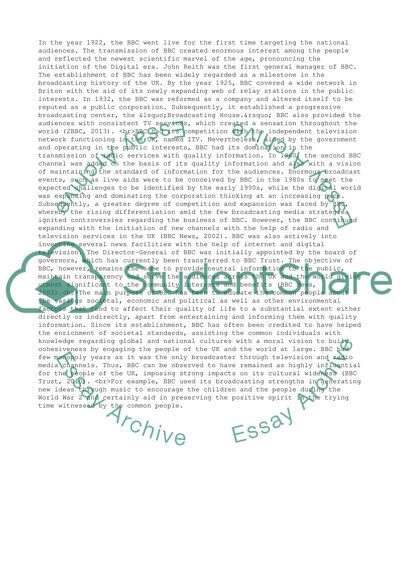Cite this document
(“Bbc Essay Example | Topics and Well Written Essays - 2250 words”, n.d.)
Retrieved from https://studentshare.org/business/1491088-bbc
Retrieved from https://studentshare.org/business/1491088-bbc
(Bbc Essay Example | Topics and Well Written Essays - 2250 Words)
https://studentshare.org/business/1491088-bbc.
https://studentshare.org/business/1491088-bbc.
“Bbc Essay Example | Topics and Well Written Essays - 2250 Words”, n.d. https://studentshare.org/business/1491088-bbc.


